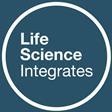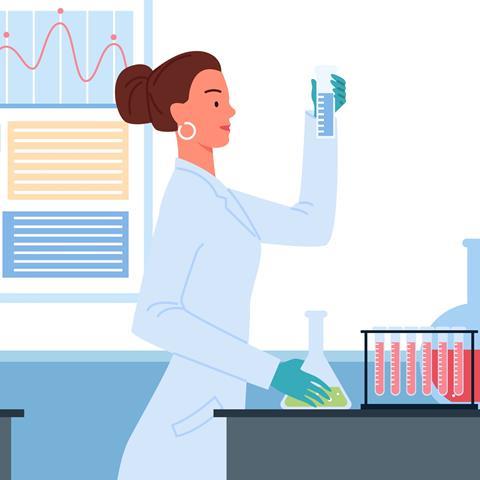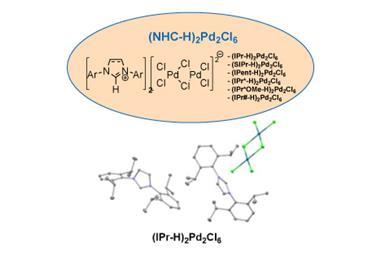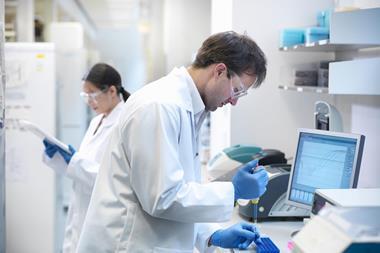Pharmaceutical innovation is moving at a staggering pace. And behind every great research group driving the industry, there is also a team of collaborators, patients and experts from various backgrounds playing a key part in enabling discoveries and bringing novel therapeutics to market.
As the world has been focused on tackling the Covid-19 pandemic over the last 18 months, it’s no surprise to see the pharmaceutical sector increasingly develop and strengthen partnerships to accelerate innovations.
From the growing range of patient entities through to new possibilities stemming from technology and patient-generated data, the pharmaceutical industry has continued to identify more and more ways to improve the sector. This includes more collaboration with patients, advocacy groups and its workforce. Opening a dialogue within the industry, and extending that to include patients, is creating a new culture that fosters those all-important lightbulb moments more rapidly than ever before.
Reskilling the future
As the pharmaceutical industry continues to emerge from the setbacks of Covid-19, it has been noted that the companies that have come back stronger than before are the same ones that have spent time training and upskilling their workers. However, the need for this attitude shift has not just come from the pandemic: the digitalised industrial revolution has also forced a need to retrain staff in certain positions.
Another concern is that larger companies are not already aware of the capabilities of their staff
A recent study found that more than half of all frontline workers have already felt the impact of disruptions due to the emergence of new drug modalities, industry digitalisation and advanced analytics. Additionally, another quarter of these workers also expected the same things to impact their roles at some point within the next five years.
With rapid workforce evolution taking place globally, it’s estimated that as many as 375 million workers will have some occupational change in the next decade. To evade this issue early on, many companies have reported that they’re already starting to look at ways to reskill or upskill their staff. Many have begun incorporating internal strategies that aim to develop critical thinking, digital capacity and social/emotional skills, in the hopes it will reduce the need to acquire external talent or employ freelance workers to carry out new responsibilities.
The emergence of automated techniques for data analysis has meant that a lot of staff working in this sector of the industry are having to improve their digital proficiency. Data analytics (43%) is the area that businesses cite as needing the capacity to address the skills gap. With IT and web design/management (26% respondents) coming close second.
Another concern is that larger companies are not already aware of the capabilities of their staff. As such, stronger and better communication is needed internally. This could also bring about a means internally to pass on new skills and strengthen bonds within the company.
Listen to a podcast on innovation
Strength in numbers
Another way in which the pharmaceutical industry can ensure that it is continually making therapeutics that satisfy the needs of patients globally is to build relationships with patient advocacy groups (PAGs). This will aid the industry in building strong, transparent and trustworthy relationships with patients and caregivers, and ultimately lead to improved creation of novel, effective solutions, drugs and medicines.
patients are the customers of the pharmaceutical and healthcare industries and just like any other customer, their wishes should feature at the heart of innovation
By opening a two-way dialogue with PAGs, it has the potential to improve healthcare experiences for patients across the world. PAGs have stated that their involvement with pharma companies is currently only utilised when a specific piece of knowledge or data is needed from them (eg, registry data or patient contacts). Furthermore, 64% of patient groups said that they would be willing to share more information if it meant that healthcare experiences for patients improved. As such, if the industry was to move to a more strategic and proactive model, rather than a reactive one, it’s likely the creation of more effective medicines could be expedited.
The customer is always right
At the most basic level, patients are the customers of the pharmaceutical and healthcare industries and just like any other customer, their wishes should feature at the heart of innovation. As such, all aspects of the system need to align with patients’ needs and preferences. By doing so, it is not only easier to create therapeutics that are better suited for patients, but also reduce unnecessary waste.
Personalised medicines are just one way in which the industry is exploring ways to make more complex and targeted therapies. This includes effective treatments for specialist and rare diseases, that can be created by tailoring drugs to an individual’s genetic mutations or susceptibilities. Additionally, companies need to ensure the creation of treatments that maximise value at the lowest cost. Over time, and once their production is optimised, personalised medicines may present a solution to this need.
Alongside companies increasing their active engagement with patients and PAGs, digital technologies present a further opportunity to make the development of novel medicines and healthcare solutions more patient-focused. Through the rise of wearable trackers and smartwatches, a larger segment of the population has access to their quotidian activity and vitals. This includes but is not limited to, heart rate, blood pressure and sleep patterns. More advanced trackers, such as continuous glucose monitors (CGMs), have successfully shown the benefits of implementing digital technology into healthcare treatments. CGMs provide diabetes patients with a means to continually monitor their blood sugar levels throughout the day and track the trends over time to gain a better understanding of how to tailor their insulin dosage. This has proven to be especially useful in patients with Type 2 diabetes, who reported better glycaemic control when using a CGM versus self-monitoring of glucose levels.
Technologies present exciting methods to involve patients in their own treatment and have shown previous success in disease management
A new approach to innovation
Collaboration internally, or with companies and groups that possess expertise in different areas, can inspire remarkable breakthroughs. Likewise, by embracing different points of view, a more rounded and holistic approach to new therapeutics can be forged. Technologies also present exciting methods to involve patients in their own treatment and have shown previous success in disease management. Pharma Integrates facilitates these aims, bringing together all parties to promote education and connection in the sector. By providing a platform to host these conversations, Life Science Integrates is aiding developments in the medicines manufacturing supply chain.
The industry has already started to implement strategies that strongly rely on forming new partnerships and putting the patients’ needs at the centre of what they do. As this new approach to healthcare continues to evolve, innovation can thrive, and patients will receive better access to more tailored drugs and healthcare options. Everybody wins.
Interested in learning more about the future of the pharmaceutical industry?
Make sure to check out our event, Pharma Integrates. Now in its tenth year, Pharma Integrates provides a unique opportunity to learn, network and share insights with pharma and healthcare leaders across the pipeline.
About the author


















1 Reader's comment